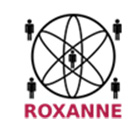ROXANNE Project

Quick facts:
- ROXANNE: Real time netwOrk, teXt, and speaker ANalytics for combating orgaNized crime
- Privacy and data protection regulations are a key element of the project
- The project started in September 2019 and ran for 40 months.
The ROXANNE project was led by the Idiap Research Institute and involved a consortium of 25 partners across 16 countries, including 10 law enforcement agencies, as well as representatives from industry and academia.
ROXANNE aimed to efficiently identify and track criminals via speech, text and video data, combined with the analysis of organized crime networks. The end product was an advanced technical platform which uses new tools to uncover and track organized criminal networks, underpinned by a strong legal framework.
Objectives
The project’s mission was based on six objectives:
- The development of an analytical platform which will enhance investigation capabilities;
- Improved identification of persons of interest through the development of innovative speaker identification technologies and criminal network analysis;
- Enhanced criminal network analysis technology, resulting in actionable decision-making;
- A dashboard to enable the visualization of investigative output;
- The deployment and evaluation of the ROXANNE platform on real criminal cases;
- Compliance with EU and INTERPOL legal and ethical frameworks.
Who benefits?
The main target audience and beneficiaries of the ROXANNE project were law enforcement agencies in the EU and around the world.
The project:
- Developed privacy-aware technologies and legal tools for fighting both old and new forms of crime;
- Reduced investigative costs by reducing the amount of data investigators must analyze and review;
- Improved criminal network analysis, leading to a more refined identification of persons of interest;
- Enhanced the usability of technical tools developed within the scope of the project;
- Generated greater information exchange between INTERPOL member countries.
Field tests
I. The first field test was held in September 2020, in a virtual event attended by 90 participants with law enforcement, technology, policy, and research backgrounds.
Based on casework provided by the Czech police, participants were able to see how the ROXANNE platform’s technology could be used in a drug trafficking investigation. Voice and text processing were used, analysing huge amounts of data to connect members of a criminal network. They were also trained on the use of the platform, including on its forensic visualization capabilities.
The test was very successful in demonstrating the platform’s potential, and in obtaining valuable feedback which will help steer future development.
II. The second field was held in October 2021 at the Netherlands Forensic Institute, with 150 participants attending in person and remotely. Stakeholders were shown the updated ROXANNE platform, which included new technical features and tools, such as community detection and social influence, combination of speech analytics with full text and metadata processing. Participants benefitted from a hands-on session, allowing them to share expert feedback that will be integrated into enhanced ROXANNE technologies and functionalities, thus meeting end-user needs.
This project has received funding from the European Union’s Horizon 2020 research and innovation programme under grant agreement No 833635.
For more information about the project you can visit the ROXANNE project website and sign up to the project newsletter.





